Filter by

The Social Neuroscience of Empathy
"A Bradford book."In recent decades, empathy research has blossomed into a vibrant and multidisciplinary field of study. This text collects cross-disciplinary, cutting-edge work on human empathy from the perspectives of social, cognitive, developmental and clinincal psychology and cognitive/affective neuroscience.OCLC-licensed vendor bibliographic record.
- Edition
- -
- ISBN/ISSN
- 9780262255295
- Collation
- 1 online resource (ix, 255 pages) :illustrations.
- Series Title
- -
- Call Number
- -

Pragmatic Neuroethics: Improving Treatment and Understanding of the Mind-Brain
A survey of the emerging field of neuroethics that calls for a multidisciplinary, pragmatic approach for tackling key issues and improving patient care.OCLC-licensed vendor bibliographic record.
- Edition
- -
- ISBN/ISSN
- 9780262265904
- Collation
- 1 online resource (xix, 267 pages) :illustrations.
- Series Title
- -
- Call Number
- -
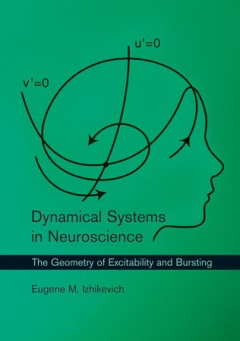
Dynamical systems in neuroscience: The geometry of excitability and bursting
Explains the relationship of electrophysiology, nonlinear dynamics, and the computational properties of neurons, with each concept presented in terms of both neuroscience and mathematics and illustrated using geometrical intuition. In order to model neuronal behavior or to interpret the results of modeling studies, neuroscientists must call upon methods of nonlinear dynamics. This book offers a…
- Edition
- -
- ISBN/ISSN
- 9780262276078
- Collation
- 1 online resource (xvi, 441 pages) :illustrations.
- Series Title
- -
- Call Number
- -
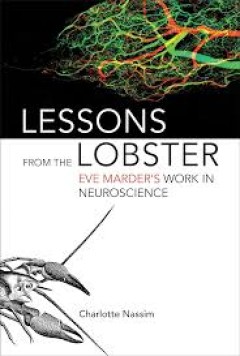
Lessons from the Lobster: Eve Marder's Work in Neuroscience
How forty years of research on thirty neurons in the stomach of a lobster has yielded valuable insights for the study of the human brain.OCLC-licensed vendor bibliographic record.
- Edition
- -
- ISBN/ISSN
- 9780262346016
- Collation
- 1 online resource
- Series Title
- -
- Call Number
- -
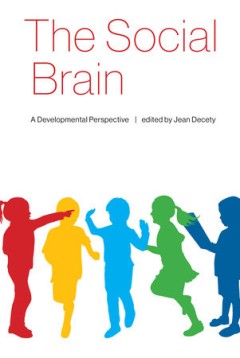
The social brain :a developmental perspective
"This new volume brings together a range of empirical and theoretical views from both developmental psychology and developmental neuroscience, and cover a core set of questions and topics that concern the development of the social mind. The basic topics about the origins, development, and biological bases of the human social mind include, but are not limited to, face and voice recognition, atta…
- Edition
- -
- ISBN/ISSN
- 0262358964
- Collation
- 1 online resource (xii, 426 pages) :illustrations (black and white).
- Series Title
- -
- Call Number
- -
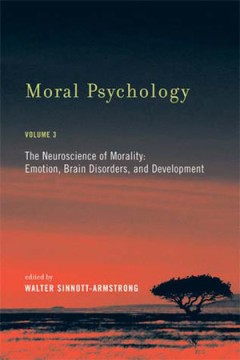
Moral psychology, The Neuroscience of Morality: Emotion, Brain Disorders, and…
"For much of the twentieth century, philosophy and science went their separate ways. In moral philosophy, fear of the so-called naturalistic fallacy kept moral philosophers from incorporating developments in biology and psychology. Since the 1990s, however, many philosophers have drawn on recent advances in cognitive psychology, brain science, and evolutionary psychology to inform their work. T…
- Edition
- -
- ISBN/ISSN
- -
- Collation
- -
- Series Title
- -
- Call Number
- -

Neurophilosophy of free will :from libertarian illusions to a concept of natu…
"A Bradford book."Walter applies the methodology of neurophilosophy to one of philosophy's central challenges, the notion of free will. Neurophilosophical conclusions are based on, and consistent with, scientific knowledge about the brain and its functioning.Neuroscientists routinely investigate such classical philosophical topics as consciousness, thought, language, meaning, aesthetics, and de…
- Edition
- -
- ISBN/ISSN
- 9780262285759
- Collation
- 1 online resource (xiii, 391 pages)
- Series Title
- -
- Call Number
- -
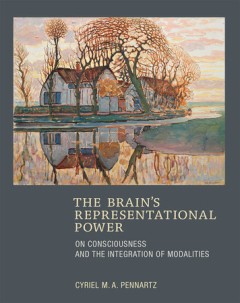
The Brain's Representational Power: On Consciousness and the Integration of M…
Although science has made considerable progress in discovering the neural basis of cognition, how consciousness arises remains elusive. In this book, Pennartz analyzes which aspects of conscious experience can be peeled away to access its core: the relationship between brain processes and the qualitative nature of consciousness. Pennartz traces the problem back to its historical foundations and…
- Edition
- -
- ISBN/ISSN
- 9780262330121
- Collation
- 1 online resource (xi, 382 pages, 12 unnumbered pages of plates) :illustrations (some color)
- Series Title
- -
- Call Number
- -

Curious Minds: The Power of Connection
"In Curious Minds: The Power of Connection, the authors explore what curiosity is and what it can do. Traipsing across the fields of philosophy and neuroscience, literature and network science, they discover that current definitions of curiosity are remarkably limited. Rather than think of curiosity as a drive to acquire new bits of information, they argue that curiosity is a practice of connec…
- Edition
- -
- ISBN/ISSN
- 0262370301
- Collation
- 1 online resource.
- Series Title
- -
- Call Number
- -

Empathy: From Bench to Bedside
Recent work on empathy theory, research, and applications, by scholars from disciplines ranging from neuroscience to psychoanalysis.OCLC-licensed vendor bibliographic record.
- Edition
- -
- ISBN/ISSN
- 9780262298612
- Collation
- 1 online resource (ix, 324 pages) :illustrations.
- Series Title
- -
- Call Number
- -
 Computer Science, Information & General Works
Computer Science, Information & General Works  Philosophy & Psychology
Philosophy & Psychology  Religion
Religion  Social Sciences
Social Sciences  Language
Language  Pure Science
Pure Science  Applied Sciences
Applied Sciences  Art & Recreation
Art & Recreation  Literature
Literature  History & Geography
History & Geography